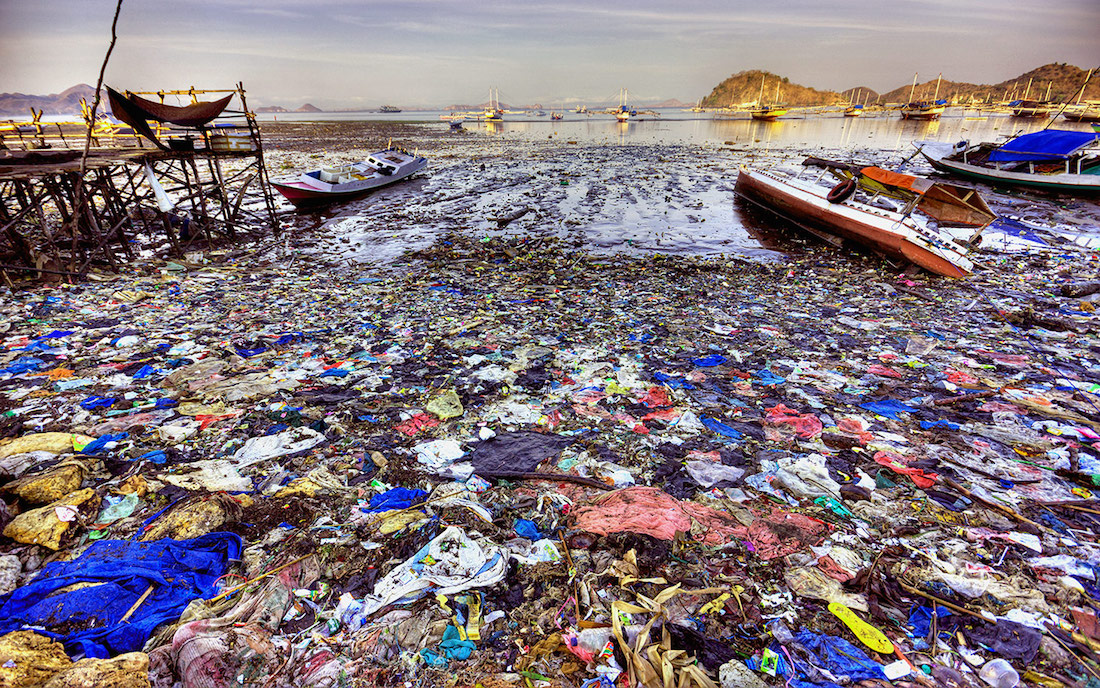
A report by the World Economic Forum says that plastic junk in the world’s oceans will soon outweigh fish by the year 2050.
According to the shocking report, the worldwide use of plastic has increased 2000% in the last 50 years, and is expected to double in the next 20 years.

BYPASS THE CENSORS
Sign up to get unfiltered news delivered straight to your inbox.
You can unsubscribe any time. By subscribing you agree to our Terms of Use
Latest Video
Washingtonpost.com reports:
By 2050, we’ll be making more than three times as much plastic stuff as we did in 2014.
Meanwhile, humans do a terrible job of making sure those products are reused or otherwise disposed of: About a third of all plastics produced escape collection systems, only to wind up floating in the sea or the stomach of some unsuspecting bird. That amounts to about 8 million metric tons a year — or, as Jenna Jambeck of the University of Georgia put it to The Washington Post in February, “Five bags filled with plastic for every foot of coastline in the world.”
The report came a day before the start of the glitzy annual meeting arranged by the World Economic Forum to discuss the global economy. This year’s meeting in Davos, Switzerland, is centered on what the WEF terms “the fourth industrial revolution” — the boom in high-tech areas like robotics and biotechnology — and its effect on the widening gulf between the wealthy and the world’s poor.
But the plastic situation — fairly low-tech and more than a century old at this point — is a reminder that we still haven’t quite gotten the better of some of the problems left over from the first few “industrial revolutions.”
According to the report, more than 70 percent of the plastic we produce is either put in a landfill or lost to the world’s waterways and other infrastructure. Plastic production accounts for 6 percent of global oil consumption (a number that will hit 20 percent in 2050) and 1 percent of the global carbon budget (the maximum amount of emissions the world can produce to prevent global temperatures from rising more than 2 degrees Celsius). In 2050, the report says, we’ll be spending 15 percent of our carbon budget on soda bottles, plastic grocery bags and the like.
Once it gets washed into waterways, the damage caused by plastics’ presence costs about $13 billion annually in losses for the tourism, shipping and fishing industries. It disrupts marine ecosystems and threatens food security for people who depend on subsistence fishing.
Besides which, all that plastic in the water isn’t too great for the animals trying to live there.
The data in the report comes from interviews with more than 180 experts and analysis of some 200 studies on “the plastic economy.”
The report was published on the same day that a study came out in the journal Nature Communications asserting that the U.N.’s Food and Agriculture Organization is drastically underestimating the overfishing of the oceans. The study, from researchers Daniel Pauly and Dirk Zeller of the University of British Columbia’s Sea Around Us project, found that global catches between 1950 and 2010 were probably 50 percent higher than previously thought — meaning that damage to the world’s fish stocks was also much worse.
Overall, it was not a good news day for anyone with fins.
But both reports gave some signs for optimism. Pauly and Zeller told The Washington Post that the underestimation of how much humans were fishing means the U.N. also underestimated how much fish the oceans can provide.
“If we rebuild stocks, we can rebuild to more than we thought before,” Pauly said. “Basically, the oceans are more productive than we thought before.”
And the World Economic Forum report, though not quite so sunny, suggests that there are ways to offset all this plastic we’re making and discarding. Countries can implement incentives to collect waste and recycle it, use more efficient or reusable packaging and improve infrastructure so that less trash slips through the system and into the seas.


